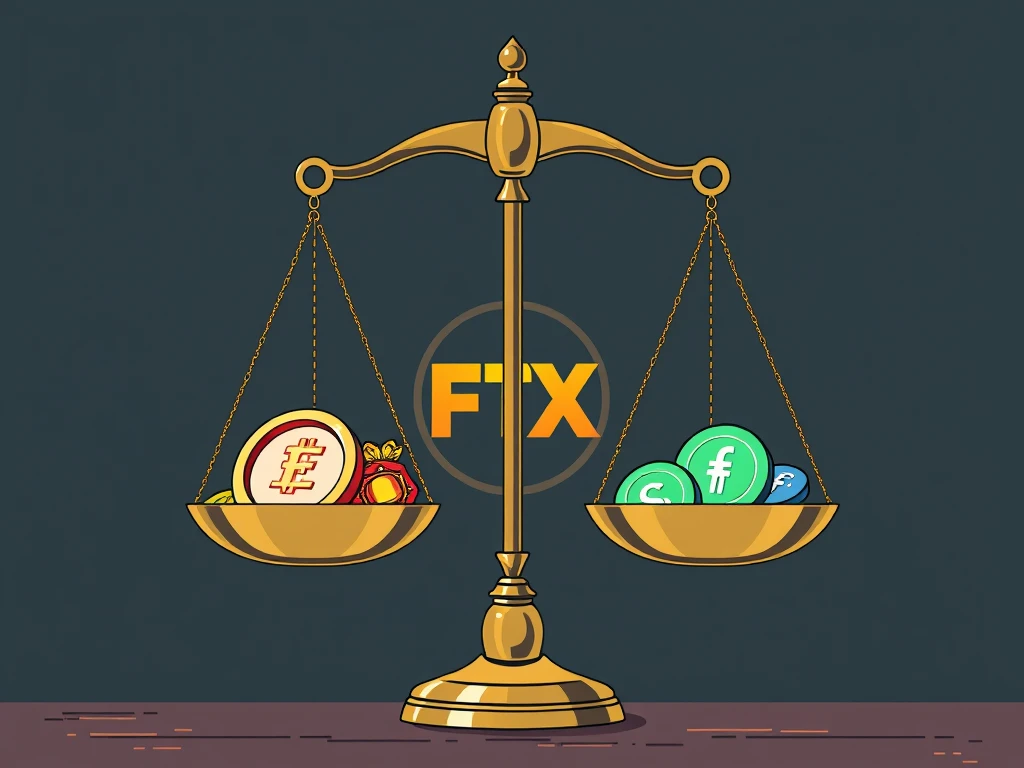FTX’s Urgent Battle: Suing NFT Stars and Delysium for Token Recovery

Bankrupt crypto exchange FTX is making aggressive moves to recover assets for its creditors. The latest action involves filing lawsuits against two blockchain firms: NFT marketplace NFT Stars and blockchain gaming company Kurosemi, which operates as Delysium. This move is part of FTX’s broader token recovery efforts following its dramatic collapse in November 2022.
Why FTX Filed a Crypto Lawsuit Against NFT Stars and Delysium
FTX claims that both NFT Stars and Delysium failed to deliver the full amount of tokens that FTX or its affiliated trading arm, Alameda Research, had paid for. The lawsuits, filed in the Delaware bankruptcy court, allege that repeated attempts to resolve the matter outside of court were unsuccessful. FTX stated on April 28 that it had made “numerous unanswered attempts” to engage with the firms and warned it would pursue legal action against other non-responsive parties holding FTX assets.
Examining the Claims Against Delysium
According to the lawsuit against Delysium, FTX’s former trading arm, Alameda Research, paid $1 million in January 2022. This payment was for 75 million of Delysium’s AGI tokens. FTX claims:
- The original token launch was scheduled for April 2023.
- Alameda’s share was subject to a vesting schedule, starting with 20% unlock after 12 months.
- The vesting timeframe was allegedly extended to 48 months and then halted entirely due to FTX’s bankruptcy.
FTX argues that despite the payment, the tokens were not delivered as agreed.
Understanding the Claims Against NFT Stars
In the separate lawsuit against NFT Stars, FTX claims it paid $325,000 in November 2021 for a total of 1.35 million SENATE tokens and 135 million SIDUS tokens. While a partial delivery was made, FTX alleges that NFT Stars halted the delivery of the remaining tokens:
- 831,000 SENATE tokens
- 83 million SIDUS tokens
NFT Stars also allegedly cited the bankruptcy proceedings as the reason for stopping the delivery.
What FTX Seeks: Tokens Plus Damages
FTX is asking the court to order both NFT Stars and Delysium to deliver the remaining tokens. Additionally, FTX is seeking damages. The exchange argues that the tokens reached peak values at certain points, and had they been delivered on time, they could have been sold for a profit. The value of these tokens has seen significant drops since their peaks:
- Delysium’s AGI token peaked at $0.672 in May 2024 but is now trading around $0.067 (a 90% drop).
- SENATE reached $5.85 in January 2022 but has lost 99% of its value.
- SIDUS hit $0.19 in January 2022 and has also plunged 99%.
The requested damages likely relate to the potential value lost due to the alleged non-delivery preventing FTX from selling near peak prices.
Part of a Broader Token Recovery Effort
These lawsuits are not isolated incidents but are part of FTX’s systematic approach to claw back funds and assets scattered before and after its collapse. The exchange’s estate is actively pursuing various entities to maximize the assets available for distribution to creditors. FTX has indicated that these crypto lawsuit filings against NFT Stars and Delysium are just the beginning, with plans to contact numerous other token and coin issuers and file additional suits against non-responsive parties.
Previous Legal Battles by FTX
FTX has already engaged in other high-profile legal actions as part of its token recovery strategy. For example, in November of the previous year, FTX filed lawsuits against:
- SkyBridge Capital and its founder, Anthony Scaramucci, seeking to recover funds related to sponsorship and investment deals made by former CEO Sam Bankman-Fried.
- Crypto exchange Binance and its former CEO, Changpeng Zhao, aiming to recover $1.76 billion in cryptocurrency transferred as part of a July 2021 repurchase agreement.
Conclusion: FTX’s Determined Push
The lawsuits against NFT Stars and Delysium underscore FTX’s determined effort to recover every possible asset. By pursuing these crypto lawsuits, FTX aims to compel the delivery of tokens it claims were paid for but withheld. While the current value of the tokens is significantly lower than their peaks, securing these assets, alongside potential damages, is crucial for increasing the pool of funds available to repay the many creditors affected by the exchange’s collapse. This ongoing legal token recovery battle highlights the complex aftermath of the FTX bankruptcy.







